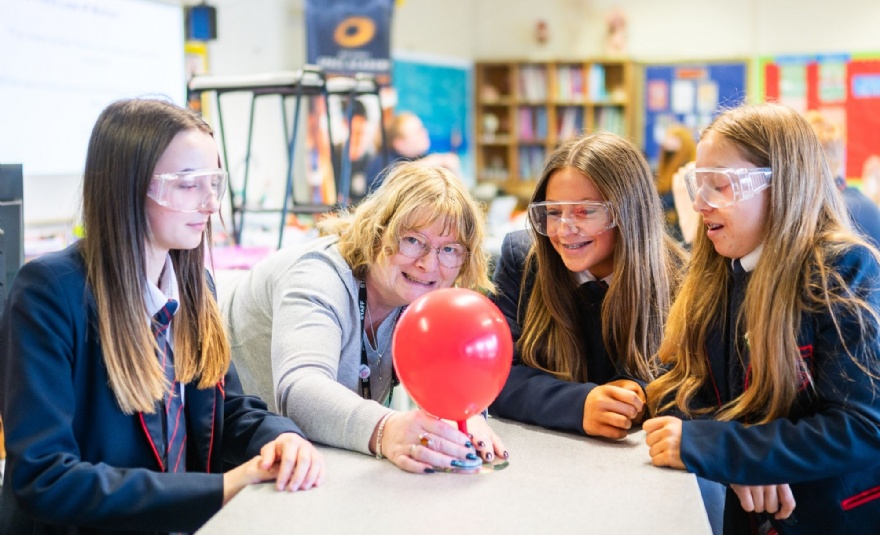Rocks, rockets and racers at Smithdon science day

Smithdon’s budding scientists enjoyed an action-packed day of Science Technology Engineering and Maths (STEM) that saw them examine asteroids and create rockets, before designing, building and racing their own dragsters.
The National Space Academy Space to Learn Masterclass took place across morning and afternoon sessions at Smithdon High School, with each attended by 30 different Year 10 students.
“The event entailed the student looking at asteroids, and investigating the science of asteroids, exploring how much energy they have and the possible outcomes of Earth impacts,” explained Claire Pike, who is our Head of Science and organised the workshops.
“The students also took part in creating hydrogen oxygen rockets, amongst other things.”
“This was the first time we had run the event,” she continued. “I feel that it is very important for students to hear about science from people other than just their science teachers here at Smithdon, to broaden their horizons and to engage the students.”
The masterclasses were followed by an after-school Key Stage 3 Science Event, which was open to students from Years 7, 8, and 9 at Smithdon, which is part of the West Norfolk Academies Trust.
Participants were challenged to design and build their own dragsters, with the finished models competing against one another in a race around the school hall.
“These events happen three or four times a year, and they normally have a theme,” said Mrs Pike.
“The students used paper, cardboard tubes, metal axes, old CDs, straws, and CD converter wheels to design their dragsters. Once they had made them, we raced them in the hall, using ramps to start them off.”
Previous science event themes have included an escape room, a DNA investigation, a Cluedo-style murder mystery, CSI, ‘Whizz, Pop and Bang’ chemistry experiments, and ‘May the Force Be With You’, which was physics-based.
“Our last one each year is where we do water rockets out on the field,” added Mrs Pike.
“I believe science can be amazing, and this gives us an opportunity to engage with the students and show them that science can be fun, and also to give them something to remember and be able to talk about in the future.”
